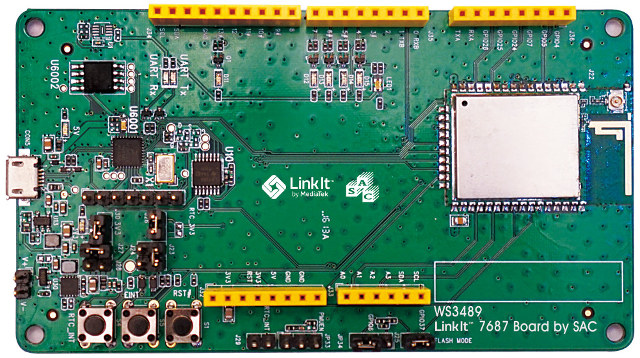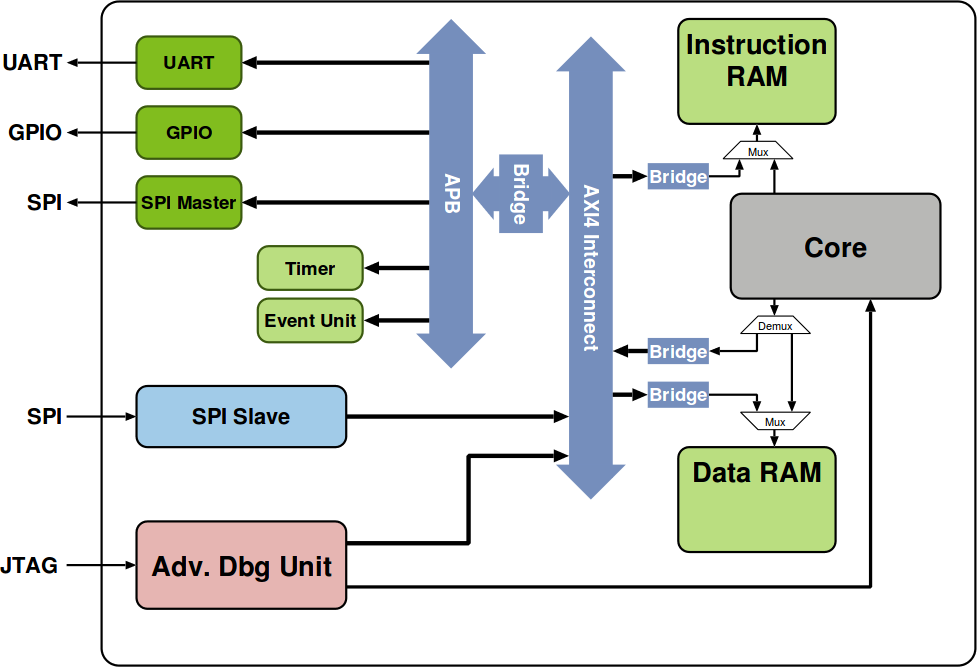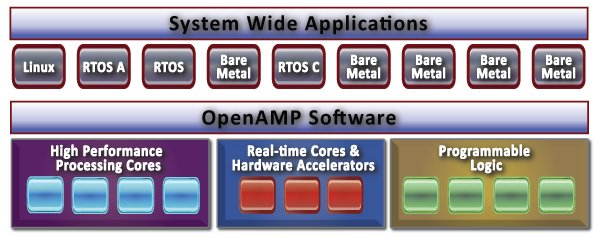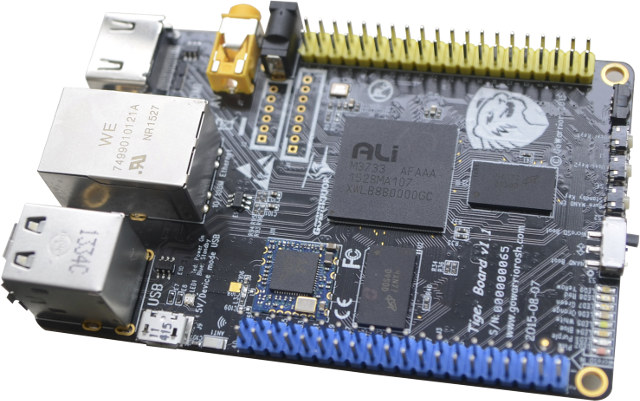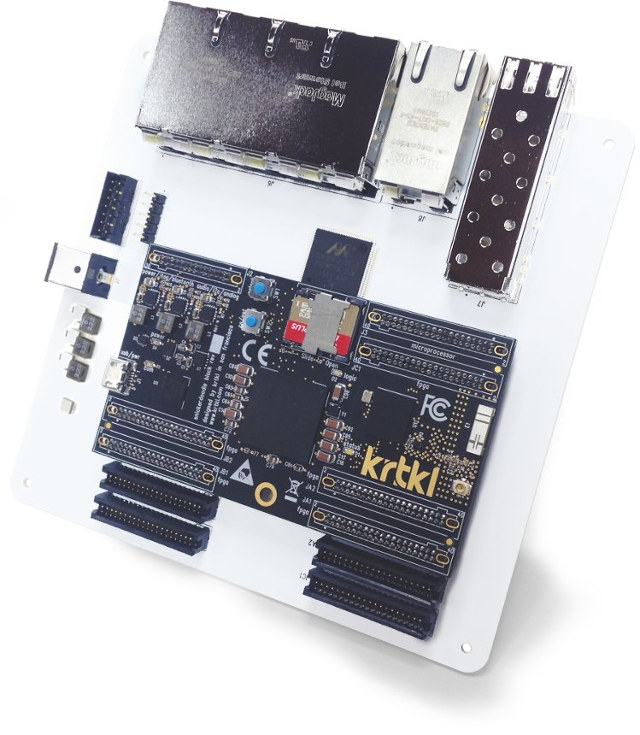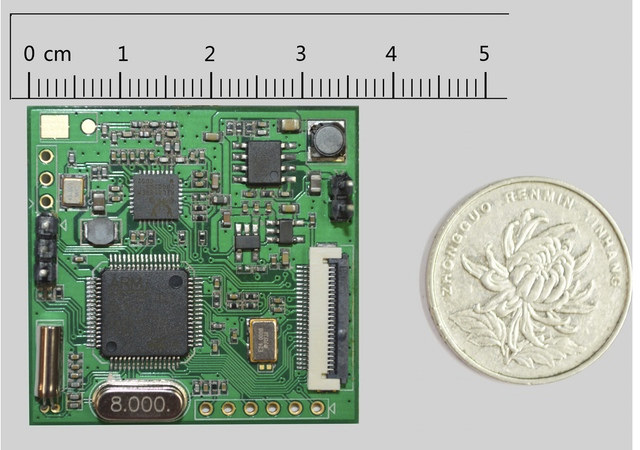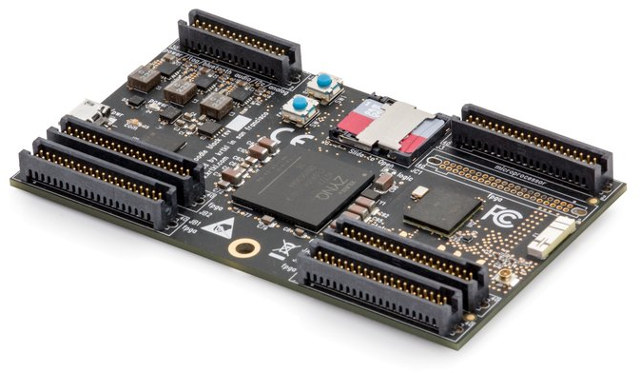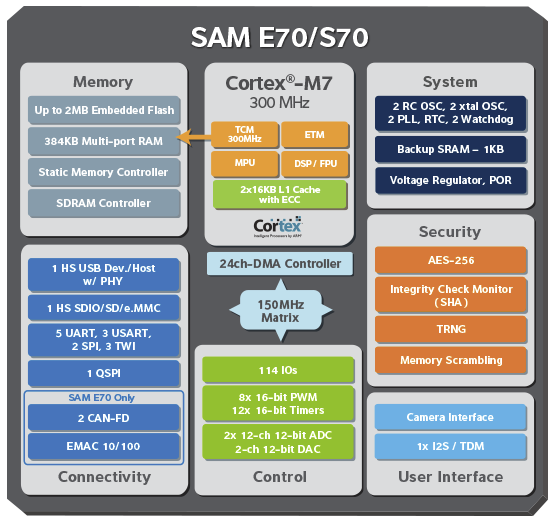MediaTek Labs has already launched several WiFi boards for IoT applications starting with LinkIt ONE, and later LinkIt Smart 7688 running OpenWrt, and the company is now about to launch LinkIt 7687 HDK (Hardware Development Kit) powered by Mediatek MT7687F Cortex-M4 SoC, running FreeRTOS, and developed & produced by Silicon Application Corp (SAC). LinkIt 7687 (WS3489) board specifications: SoC – MediaTek MT7687F ARM Cortex-M4F MCU @ 192MHz with 352 KB SRAM, 64KB ROM, and 2 MB serial flash in package, integrated security engine, and built-in 802.11n WiFi. 8×8 mm 68-pin QFN package Connectivity – 1×1 802.11 b/g/n WiFi with on-module PCB antenna and U.FL connector. USB – 1x micro USB for power, debugging (Coresight Debug Access Port + Virtual COM) Expansion Arduino Uno Rev. 3 headers + an extra 8-pin extension connector. Mass Storage Device (MSD) flash programming interface. Reserved headers for power consumption (current) measurement. Misc – LEDs for […]
PULPino Open Source RISC-V MCU is Designed for IoT and Wearables
lowRISC is not the only open source processor project based on RISC-V instructions, as researchers at ETH Zurich university and the University of Bologna have developed PULPino open-source processor based on RISC-V instructions set, optimized for low power consumption, and targeting wearables and the IoT applications. PULPino is a single core processor derived from the PULP project (Parallel Ultra-Low-Power Platform) featuring a quad core RISC-V SoC with new RI5CY Signal Processing ISA extensions designed by the universities. The core has an IPC (instructions per cycle) close to 1, full support for the base integer instruction set (RV32I), compressed instructions (RV32C) and partial support for the multiplication instruction set extension (RV32M). PULPino also features peripherals such as I2S, I2C, SPI and UART. PULPino has already been taped out as an ASIC in UMC 65nm at the beginning of the year, but the RTL code be run on Xilinx Zynq-7010 powered Zedboard, […]
OpenAMP Open Source Framework Provides the Glue between Linux, RTOS, and Bare Metal Apps in Heterogeneous SoCs
SoCs becoming more complex, and go beyond homogeneous multicore systems by mixing different type of cores such as high performance cores, low power real-time cores, or even FPGA fabric. Examples include NXP i.MX6 SoloX with an ARM Cortex A9 core for Linux apps, and an ARM Cortex M4 core for real-time tasks, or Xilinx Zynq UltraScale+ MPSoC with Cortex A53 core for higher level apps, Cortex R5 cores for real-time processing, and Ultrascale FPGA logic. All these different cores are running their own Linux based OS, real-time operating system or bare metal application, and all this makes software development an even greater difficult tasks. In order to reduce the complexity, and address some of the issues, the Multicore Association has launched a new working group targeting the management, expansion, and standardization of OpenAMP (Open Asymmetric Multi Processing), an open source framework that allows operating systems to interact within a broad […]
GoWarrior Tiger Development Board with ALi M3733 SoC To Support Android, Debian and FreeRTOS
There was a time when development boards were really hard to get for individuals with companies not wanting to waste their time with hobbyists, but the maker revolution changed all that, and now many companies want to get involved in “open source” board for the developer’s community. The latest board trying to emulate the Raspberry Pi is GoWarrior Tiger powered by ALi M3733 dual core cortex A9 processor with 1GB RAM, 4GB Flash, Ethernet and WiFi, HDMI and AV output, and two 40-pin expansion headers. Tiger board specifications: SoC – ALi M3733-AFAAA dual Cortex A9 processor @ 1.0 GHz with ARM Mali-400 MP2 GPU System Memory – 1GB DDR3; dual channel 1600 MT/s, 800MHz Storage – 4GB on-board NAND Flash + micro SD slot Video & Audio Output – HDMI 1.4 port up to 1080p, with support for HDCP and CEC, 3.5 mm AV jack Connectivity – 10/100M Ethernet, 802.11 […]
giggleBits Hackable ARM & FPGA Router Comes with an SFP Cage and 5 Gigabit Ethernet Ports (Crowdfunding)
Remember Snickerdoodle board? If you don’t, the board is one of the cheapest Xilinx Zynq available on the market, and the project is currently on CrowdSupply, and 75% funded with 28 days left. They’ve just posted an update about a new daughterboard that I found interesting: giggleBits which provides 5 Gigabit Ethernet and an SFP cage on top of WiFi 802.11 b/g/n and Bluetooth connectivity already found on Snickerdoodle board. giggleBits + snickerdoodle specifications: SoC/Memory/Storage/WiFi via Snickerdoodle board: SoC Xilinx Zynq-7010 dual core Cortex A9 processor @ 667 MHz + FPGA with 430K gates or Xilinx Zynq-7020 dual core Cortex A9 processor @ 866 MHz + FPGA with 1.3million gates (~430K ASIC gates) System Memory – 512MB or 1GB LPDDR2-800 Storage – micro SD card slot, 16MB boot flash Ti Wilink 8 – single or dual band 802.11 b/g/n WiFi + Bluetooth 4.0 Expansion – 4x 40-pin TFM headers for access […]
Vigek IOT Core is a Tiny STM32 WiFi Board with a Camera Interface, GPIOs, PWM, and Analog Inputs
Vigek IOT Core packs an STM32 MCU, a Realtek WiFi module, and 8-bit camera interface into a 3.6×3.75 cm board. It also provides GPIO, PWM, and analog input to interface with external hardware such as sensors, and the project had a modest, yet successful, Kickstarter campaign in the summer. Vigek IOT Core specifications: MCU – STMicro STM32F103 ARM Cortex-M3 micro-controller @ up to 72MHz Connectivity – 802.11b/g/n WiFi @ 54Mbps I/Os Up to 8 GPIOs, configurable as up to 4 analog inputs, and up to 6 PWM outputs I/O voltage tolerance – 0~3.6V I/O output current – Up to 8mA Camera – 8-bit camera interface, optional 2.0MP camera with OV2640 sensor Power supply – 3.3V ~ 24V Power Consumption – 32mA in active mode (WIFI connected, camera not working) Dimensions – 36mm x 37.5mm While Vigtek IOT Core can be used without programming, simply using an Android app to control the […]
Snickerdoodle Xilinx Zynq ARM + FPGA Board Starts at $55 (Crowdfunding)
While Xilinx Zynq UltraScale+ ARMv8 + FPGA SoC is still in development, there are already quite a few Xilinx Zynq-7000 boards on the market today. The cheapest I know of is MYirTech Z-Turn board selling for $99, but krtkl (pronounced “critical“), US a based startup, will soon bring an even cheaper Zynq-7010/7020 board with their Snickerdoodle board currently listed on CrowdSupply platform for $55 and up, plus shipping. Snickerdoodle board specifications: SoC Xilinx Zynq-7010 dual core Cortex A9 processor @ 667 MHz + FPGA with 430K gates or Xilinx Zynq-7020 dual core Cortex A9 processor @ 866 MHz + FPGA with 1.3million gates (~430K ASIC gates) System Memory – 512MB or 1GB LPDDR2-800 Storage – micro SD card slot, 16MB boot flash Connectivity via Ti Wilink 8 solution 2.4GHz 802.11 b/g/n WiFi + Bluetooth 4.0 or Dual band 802.11 b/g/n WiFi (2×2 MIMO) + Bluetooth 4.0 USB – 1x micro USB port […]
Atmel SAM S70 and SAM E70 Cortex M7 MCUs, SAM V71 Xplained Board Are Now Shipping
ARM Introduced Cortex M7 IP in September, and ST Micro simultaneously announced its STM32F7 Cortex M7 MCU clocked up to 200 MHz, and boards are now available, including some running Linux. But two other companies have licenses Cortex M7, Freescale with its Kinetis KV5x micro-controllers which are yet to be mass-produced, and Atmel which has recently announced their SAM S70 and E70 micro-controllers are now in mass production. SAM E70 and S70 have similar features, but E70 offers some extra interface like CAN and Fast Ethernet: ARM Cortex-M7 core running at up to 300MHz (1500 CoreMark) Up to 2MB Flash and 384kByte SRAM Floating point unit (FPU) for high-precision computing and accelerated data processing High-performance internal memory architecture with user configurable Tightly Couples Memories and System memory, and 16kB I and D-cache High Speed USB Host and Device with on-chip high-speed PHY CMOS image sensor interface AES hardware encryption engines, […]


